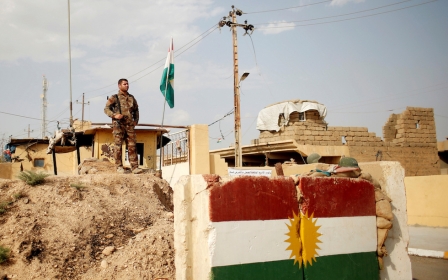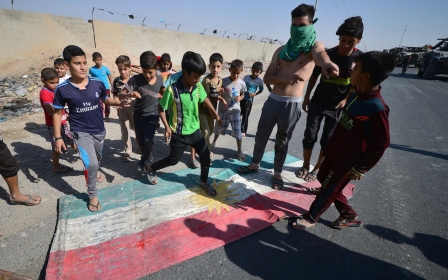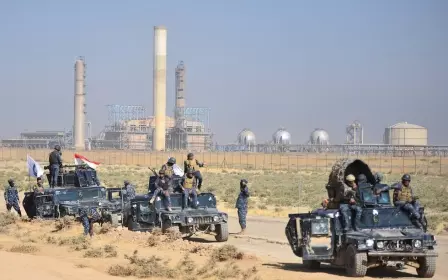Iraqi army says it has achieved goals in Kirkuk operation
Iraqi government forces said on Wednesday that they had achieved their objectives in a lightning 48-hour operation against Kurdish forces in disputed territory outside the autonomous Kurdish region.
On Monday and Tuesday, Iraqi troops and allied militia retook the northern province of Kirkuk and its lucrative oil fields, as well as formerly Kurdish-held areas of Nineveh and Diyala provinces, in a punishing riposte to a Kurdish vote for independence last month.
"Security has been restored in sectors of Kirkuk. Forces have been redeployed and have retaken control of Khanaqin and Jalawla in Diyala province, as well as Makhmur, Bashiqa, Mosul dam, Sinjar and other areas in the Nineveh plains," the federal government's Joint Operations Command said.
Kurdish authorities meanwhile on Wednesday postponed presidential and legislative elections because of the current crisis with Baghdad, its electoral commission said.
The region's Independent High Electoral Commission said it had "decided to suspend temporarily preparations for the elections set for November 1 because of the current situation".
The Iraqi Oil Ministry said on Monday that oil minister Jabar al-Luaibi had asked BP ''to quickly make plans to develop the Kirkuk oil fields".
Iraqi government forces took Kirkuk from Kurdish peshmerga fighters who had occupied the area in 2014, in the course of the war on Islamic State.
BP says on its website it has provided technical assistance in the past to the Iraqi state-owned North Oil Company to aid the redevelopment of the Kirkuk field.
Kirkuk is estimated to have around nine billion barrels of recoverable oil remaining, according to BP.
Late on Monday, Iraqi forces seized the key Bai Hassan and Avana Dome oil fields, which had been controlled by Peshmerga aligned to the Kurdistan Democratic Party (KDP).
Patrick Osgood, a former Kurdistan bureau chief at Iraq Oil Report, said this could possibly decide the fate of the Kurdish push for independence.
"They contribute 280,000 barrels of oil a day to the KRG's total of 600,000 barrels a day," he explained.
"They are completely integral to the KRG’s economy and the KRG would sink very rapidly without that oil production."
As Iraqi forces advanced, Kurdish operators briefly shut some 350,000 barrels per day of oil output at two large Kirkuk fields, citing security concerns, oil ministry sources on both sides said.
But production resumed shortly thereafter following an Iraqi threat to seize fields under Kurdish management if they did not do so, according to the sources.
Middle East Eye propose une couverture et une analyse indépendantes et incomparables du Moyen-Orient, de l’Afrique du Nord et d’autres régions du monde. Pour en savoir plus sur la reprise de ce contenu et les frais qui s’appliquent, veuillez remplir ce formulaire [en anglais]. Pour en savoir plus sur MEE, cliquez ici [en anglais].




